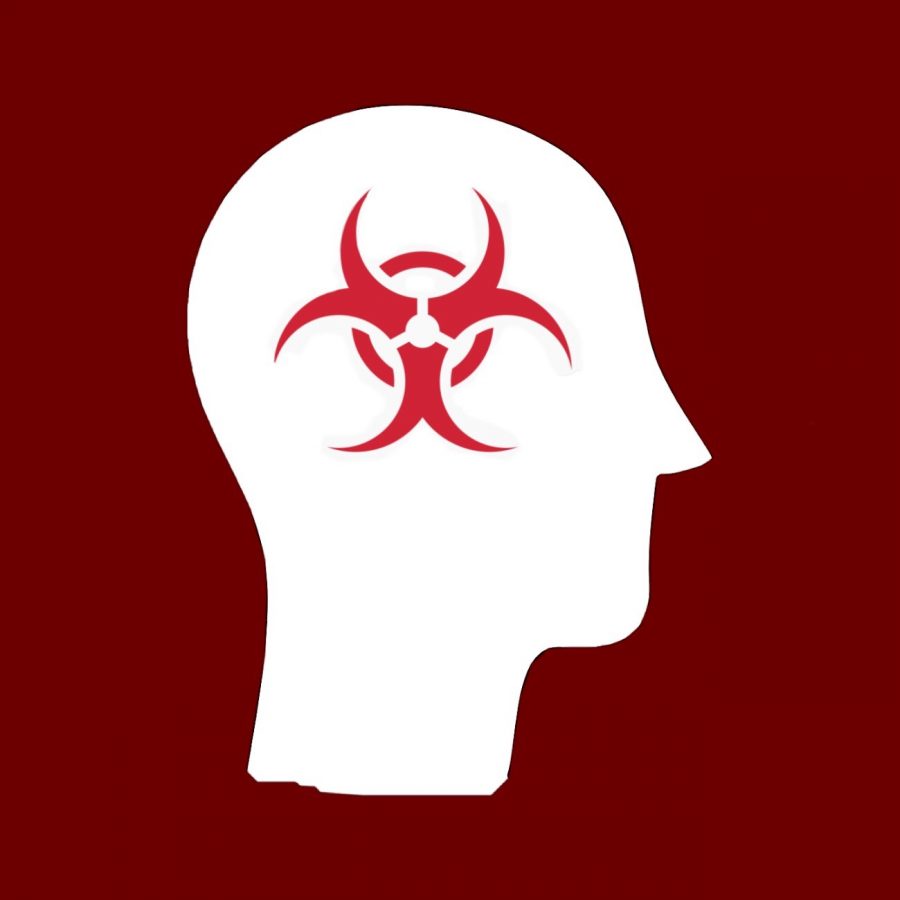Opinion: The Epidemic Deadlier Than the Coronavirus
February 21, 2020
There is an epidemic raging in this country. In any one year, it has taken more American lives than Ebola or Swine Flu ever did. It is the 10th leading cause of death in the United States and its death toll totals more than mass shootings and traffic accidents combined and are estimated to have already infected 46.6 million adults. Its side effects have killed 48,344 people last year alone. And as the conspicuous Wuhan Coronavirus seizes headlines and rattles markets around the world, the United States ignores this far more insidious and fatal affliction: mental illness.
According to the National Institute of Mental Health, an estimated 46.6 million adults suffer from some mental illness – approximately 18.9 percent of U.S. adults. Late last month, the Centers for Disease Control and Prevention reported that a staggering 48,344 people died by suicide in 2018, an increase of more than a thousand from the year before. While the increase appears marginal, the rise in deaths over time has been relentless; the suicide rate has climbed 35 percent since 1999.
The CDC’s report fell to the wayside amidst dizzying headlines surrounding the Coronavirus. 74 percent of Americans are either very or somewhat concerned about the situation according to a poll conducted by Morning Consult, while Google search trends showed a disturbing spike in inquiries for “corona beer virus”; illustrating the fear and confusion around the novel virus is spreading throughout the internet faster than its actual infection rate.
Misunderstanding and fervor around epidemics are nothing new to Americans who remember the frenzy of panic about Ebola or the Zika virus and some who still warily purchase beef with worries of mad cow disease still lingering. These illnesses fill column inches and conjure anxieties of a made-for-Hollywood pandemic sweeping the nation when that reality only affects a very small number of Americans.
This alarmist trend around whatever ailment is popular is occurring at a time when the suicide rate among Americans has been rising; especially among young Americans.
For children ages 10 to 14, the suicide rate has tripled between 2007 to 2017 causing some lawmakers to push for changes in public school, the area that kids reportedly feel the most stressed, and introduce policies regarding mental health days. Oregon and Utah have already passed measures that would allow students to cite mental health for an excused absence while similar legislative proposals have been suggested in California, New York, and Florida.
As for those who are beginning college and ultimately the next phase of their lives, the CDC states the suicide rate among people ages 10 to 24 was stable from 2000 to 2007 but increased by an astounding 56 percent between 2007 and 2017.
The staggering spike of suicides among college-aged Americans could be caused by a bevy of reasons. Until the age of 25, rational thinking and the ability to regulate emotions and impulses are still developing. Debt, course loads, and the inevitable changes in lifestyle during this stage of life make college students more vulnerable to experiencing anxiety and mental health issues regardless of their preexisting mental health history.
According to Winston Hennesy, a clinical counselor at Child’s Home Society, a nonprofit devoted to counseling and empowering children, having a support system in place is vital to the mental health of college-age Americans.
“It doesn’t necessarily have to be your family, it can be your friends – online friends, too, your class, etc. For a lot of students, this is the most stress they’ve ever faced in their lives and the natural inclination to isolate,” Hennesy told us.
“Your support doesn’t have to be large; a lot of people think that because they don’t have two loving parents or a big group of friends that they don’t have a support structure, that’s wrong,” Hennesy said. “All you need is someone, to be honest with about what is stressing you out; you’re not alone, even if you have no one that comes to mind there are always professionals you can confide in, there is always someone.”
This story was updated with the writer’s byline.
Valencia College has contracted with a private and confidential counseling service. If you feel overwhelmed or alone, call the toll-free number (1-800-878-5470) to speak to a professional counselor.
If you are having suicidal thoughts, please call the Suicide Prevention Hotline (1-800-273-8255) at any time.




